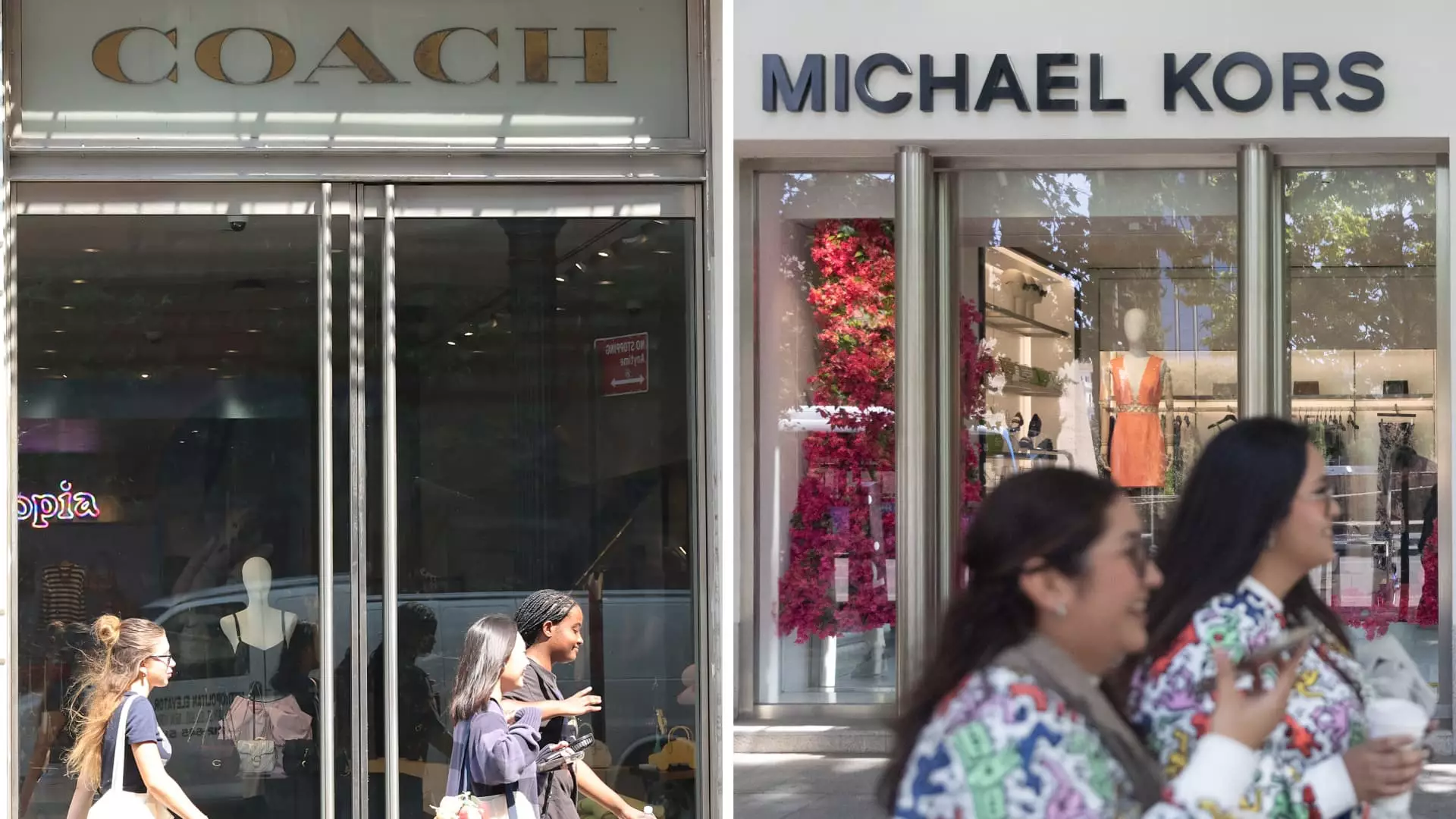In a significant legal development, a federal judge has officially blocked Tapestry’s ambitious acquisition of Capri Holdings, putting a damper on what was touted as a groundbreaking merger within the luxury fashion industry. Judge Jennifer Rochon delivered this ruling after an expedited trial held last month in New York, granting the Federal Trade Commission’s (FTC) motion for a preliminary injunction. The proposed $8.5 billion merger aimed to unite Tapestry’s acclaimed brands, including Coach, Kate Spade, and Stuart Weitzman, with Capri’s luxury names like Versace, Jimmy Choo, and Michael Kors.
The announcement saw the immediate financial implications unfold in the stock market, with Tapestry’s shares experiencing a boost of over 10%, while Capri’s stock took a nosedive, plummeting nearly 50%. Tapestry, in response to the ruling, expressed their disappointment and declared intentions to appeal, framing the lawsuit as a misinterpretation of the competitive realities in the fashion landscape.
Tapestry defended the merger by positioning it as a necessary evolution in an industry characterized by intense competition and rapid change. In its official statement, the company emphasized the fragmentation of the luxury market, suggesting that both established and emerging brands constantly vie for consumer attention. The argument presented highlighted that the merger would not stifle competition; rather, it would enhance market dynamism and allow both companies to innovate more effectively.
From Tapestry’s perspective, the consolidation was seen as a means to adapt more fluidly to consumer trends, thus delivering superior products and maintaining outreach to a broader customer base. The firm maintained that the merger was not only beneficial for shareholders but also advantageous for consumers, providing a wider selection of quality items and speedier market responsiveness.
Conversely, the FTC took a proactive stance that emphasizes consumer protection and competition retention within the market. The agency argued that if the merger proceeded, it would adversely affect consumers by reducing options and increasing prices, particularly in the affordable handbag segment. The FTC’s director of the Bureau of Competition, Henry Liu, proclaimed the decision as a victory for consumers who rely on accessible luxury products, reinforcing the belief that the merger would encroach upon fair market competition and ultimately harm job quality across the workforce.
The agency’s scrutiny is rooted in a broader regulatory environment increasingly vigilant about corporate consolidations that may undermine consumer interests. The FTC’s intervention reflects a wave of anti-trust enforcement that has gained momentum under the leadership of Chair Lina Khan, focusing on maintaining competition across various sectors, including retail, technology, and food distribution.
The merger’s collapse carries significant financial ramifications for both parties involved. Under their agreement, Tapestry faces the prospect of reimbursing Capri for transaction-related expenses if the merger fails, with costs potentially ranging from $30 million to $50 million. Conversely, Capri must contend with a hefty breakup fee of $240 million if it chooses to terminate the agreement. This financial interplay underscores the high stakes associated with mergers in competitive markets, especially within the ever-evolving landscape of luxury retail.
Legal documents related to the case remain sealed, leaving elements of the judge’s reasoning and the specific legal arguments undisclosed. Nonetheless, the outcomes of such high-profile cases are often closely observed, as they signal to the industry not just the regulatory climate but the viability of future mergers.
The ruling arrives at a time of heightened price sensitivity among consumers, largely spurred by persistent inflationary pressures. The situation has prompted various stakeholders, including the Biden administration and political candidates across the spectrum, to advocate for stronger regulatory oversight aimed at maintaining competitive markets.
While on one hand, Tapestry argues for price stabilization and product innovation, the FTC and broader market dynamics highlight the importance of consumer choice and affordability in a climate where discretionary spending is becoming an increasingly cautious endeavor.
This blocked merger illustrates the complexities entwining contemporary corporate ambitions, competitive integrity, and consumer welfare, as luxury brands navigate an intricate framework of regulatory oversight that shapes their industry dynamics.

Leave a Reply